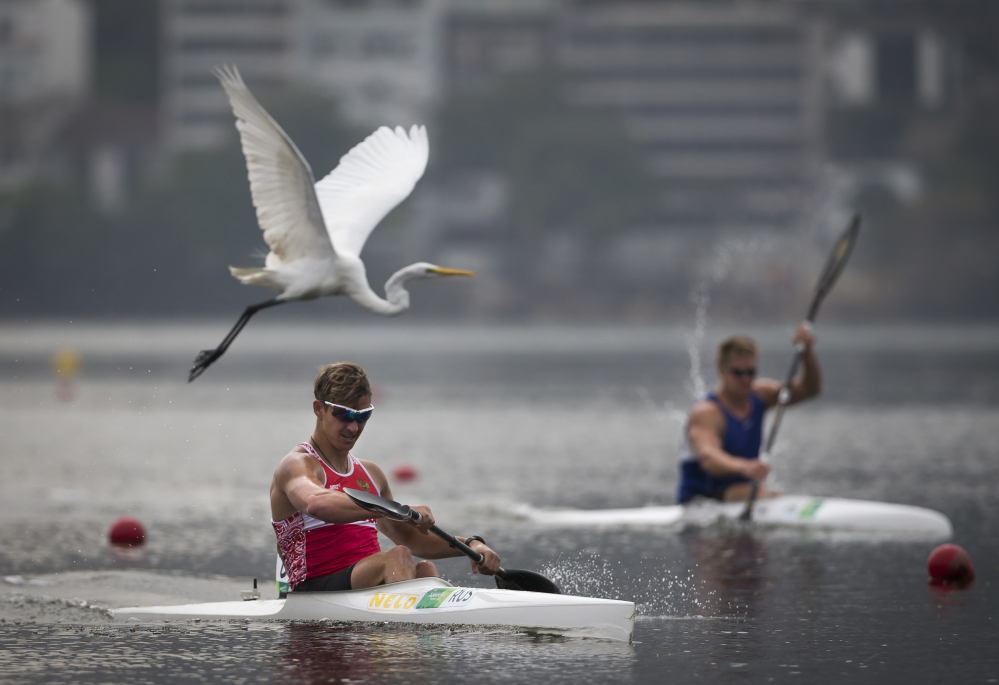RIO DE JANEIRO — Medical experts and scientists said Friday it’s unlikely that a German sailor with a bacterial skin infection that’s resistant to antibiotics contracted the illness in polluted Olympic waters.
Sailor Erik Heil fell ill after competing in a pre-Olympic test event held Aug. 15-22 in Rio’s Guanabara Bay, into which dozens of rivers dump raw sewage.
Heil needed daily hospital treatment for multiple infections on his legs and hip. The Berlin hospital where he was treated said he contracted MRSA, a type of bacteria resistant to many antibiotics.
The athlete, who told The Associated Press on Thursday that he’s now largely recovered, said he had never before had any such infections and felt that he got sick because of the water in Rio.
However, some top global experts on superbacterias said it’s unlikely, though not impossible, that Heil got the infection from the water.
“You wouldn’t expect to see somebody get MRSA from contact with water,” said Dr. Pritish Tosh, an infectious disease physician and researcher at the Mayo Clinic in the U.S. “It’s usually spread by skin contact.”
In the past decade, MRSA and other so-called “superbacterias” have made the leap from being mostly contained in hospitals to infecting people who have not been in a hospital. Last December, Brazilian researchers from the Health Ministry’s Oswaldo Cruz Foundation research lab published results of a study showing they found bacteria containing the KPC enzyme in the Carioca River.
That river dumps its fetid contents into the waters off Flamengo Beach – where Olympic sailing events take place. The report underscored that there were no known cases of people falling ill from the bacteria and no sailors from last month’s event are known to have contracted KPC.
Send questions/comments to the editors.



Success. Please wait for the page to reload. If the page does not reload within 5 seconds, please refresh the page.
Enter your email and password to access comments.
Hi, to comment on stories you must . This profile is in addition to your subscription and website login.
Already have a commenting profile? .
Invalid username/password.
Please check your email to confirm and complete your registration.
Only subscribers are eligible to post comments. Please subscribe or login first for digital access. Here’s why.
Use the form below to reset your password. When you've submitted your account email, we will send an email with a reset code.